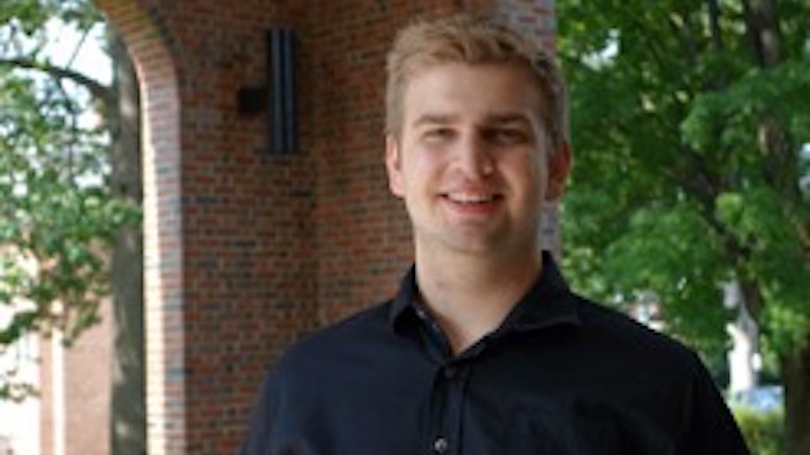
- Public Policy
- Leadership
- Funding
- News & Events
- About the Center
Back to Top Nav
Back to Top Nav
Back to Top Nav
Back to Top Nav
During my four years at Dartmouth, I spent over half of my undergraduate career serving as a student program assistant for the Management & Leadership Development Program. Now that I’m four years removed from my senior year and can reflect on my time working on the program, it’s safe to say I learned many valuable lessons from both the weekly speakers we had and from the day-to-day logistics required for a successful term.
The program advertises itself as an undergraduate experience designed to help expose students to the skills that employers seek. At the time, when I myself was enrolled in the program, I couldn’t connect the dots between the knowledge I acquired and the real world. I did my best to remember the concepts that had been introduced, but more specifically, I paid attention to how the material was delivered, tucking the knowledge into the back of my mind in case I needed it for a rainy day. I didn’t realize it the time, but my experience as a student and a facilitator of MLDP greatly shaped my professional life and laid the seeds that would form the roots of my academic and personal interests.
After Dartmouth, I moved to Russia to work as a teacher of English as a Foreign Language. I thought it would be just a one-year experience. I would spend a year in the country I majored in and afterwards I’d return to the US. But then one year became two, and two years became three. Now as I begin my fourth year in Russia, I can see just how MLDP influenced my teaching.
Originally, I worked just like every other teacher did. I had my students open their textbooks, do exercises and we’d discuss the topic of the day in the textbook. My experience has shown me that this style of teaching languages is the most common. However, such a format is pretty dull and I think my students were quite bored.
Unsatisfied with the way I was working with students, I sought to improve my teaching style by creating more engaging ways to manufacture enthusiasm amongst my pupils. To accomplish that, I started drawing from the facilitation techniques I was first introduced to in MLDP and emphasizing the Kolb theory of experiential learning—the theory the MLDP curriculum follows.
I also began employing task-based learning principles that MLDP lecturers always tried to provide students. Such principles rely on the teacher creating some problem for students to solve, and the students have the intellectual freedom to find a solution. Problems don’t necessarily have a right and a wrong answer like problems in a language textbook, but rather solutions to the problem can be critiqued and improved.
Lastly, and maybe most importantly, I adopted a workshop-style curriculum. The reality of the institution where I teach is that students often skip classes. Workshop-style classes have the added benefit of only needing the students in attendance for a successful outcome. Structuring my classes in this way allows me to provide the students in attendance with the best experience I can.
It’s impossible to explain and outline all the ways I’ve found connections between my Rocky experiences and my professional life, but I highly value everything I learned from my time at Rocky.
Shared by Joshua Schiefelbein ’14. He currently lives in Pavlovsk, Russia, where he works as an English language teaching assistant at Gorchakov Memorial School.